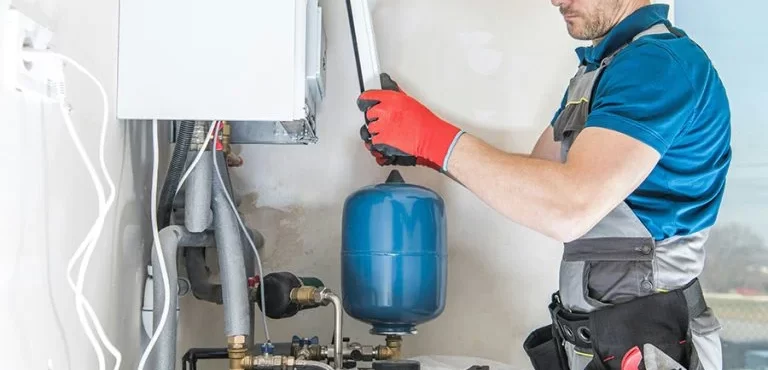
In North Carolina, obtaining your plumbing and HVAC license can open up a world of opportunities in a thriving industry. Whether you are just starting out or looking to advance your career, understanding the licensing process is important. This guide covers everything you need to know about getting your plumbing or HVAC license in North Carolina, including types of licenses, requirements, and tips for success.
Understanding the Licensing Authority
The North Carolina State Board of Examiners of Plumbing, Heating, and Fire Sprinkler Contractors governs the licensing process for plumbers and HVAC professionals in the state. They oversee various classifications of licenses, which are essential for ensuring that contractors meet the necessary standards for safety and professionalism.
Types of Licenses Available
In North Carolina, there are several classes of licenses, each with its own scope of work:
- Class I License: This is the highest classification and covers all plumbing, heating, and fire sprinkler systems for all structures. If you’re planning a long-term career in the industry, this is the license you should aim for.
- Class II License: This license is for plumbing and heating systems specifically in single-family detached residential dwellings. If your focus is only on residential work, this may be the right choice for you.
- Restricted Limited Plumbing Contractor License: This requires 1,500 hours of full-time experience and allows you to work under certain limitations, including academic or technical training.
Heating Group Classifications
When it comes to HVAC work, there are three distinct heating groups that you can be licensed under:
- Heating Group 1: This group allows license holders to work on heating systems requiring high or low-pressure steam, vapor, or hot water.
- Heating Group 2: This group covers integral systems for heating or cooling buildings with mechanical refrigeration capacity in excess of fifteen tons.
- Heating Group 3: This group is for systems with mechanical refrigeration capacity of fifteen tons or less.
Requirements for Obtaining a License
To qualify for a Class I License, you’ll need a minimum of 3,000 hours of full-time experience in installation, maintenance, repair, or service of plumbing or heating systems. If you’re applying for a Class II License, the requirement drops to 2,500 hours.
For the Restricted Limited Plumbing Contractor License, you only need 1,500 hours of experience, with a possibility of counting up to half of that through academic or technical training. This can significantly shorten the time it takes to qualify.
Tracking Your Experience
It’s important to keep accurate records of your work experience. If you’re new to the field, find a reputable mentor or employer who can guide you and help you track your hours. Make sure to collect pay stubs or other documentation that can serve as proof of your experience.
Application Process
Once you’ve met the experience requirements, it’s time to apply for your license. Here’s how the application process works:
- Complete the Application: Fill out the application form provided by the North Carolina State Board of Examiners of Plumbing, Heating, and Fire Sprinkler Contractors.
- Submit Documentation: Include any required documents, such as proof of experience and a criminal background check.
- Pay the Application Fee: The fee varies depending on the type of license you are applying for, so ensure you check the latest fee structure.
Examinations
After your application is approved, you’ll need to take the licensing exam. The exams are open-book and cover a range of topics relevant to plumbing and HVAC work.
Here’s what you need to know about the exams:
- Exam Format: There are technical exams and business and law exams. The number of exams varies based on the type of license.
- Scheduling: You must schedule your exam within 30 days of receiving your approval notification.
- Results: You’ll receive your results immediately after completing the exam.
Post-Examination Steps
If you pass your exam, congratulations! However, there are still a few steps to complete:
- License Activation: Submit a license activation form along with the appropriate fee to activate your license.
- Insurance: Consider obtaining liability insurance to protect yourself and your business.
Hiring Employees
As you grow your business, you may find yourself in a position to hire employees. However, it’s essential to understand the regulations surrounding employment classifications, especially concerning 1099 contractors versus W-2 employees.
Many small business owners mistakenly believe they can hire independent contractors simply because they hold a license. This is a complex area, and I encourage you to seek out reliable information or consult with a legal professional to ensure compliance with the law.
Resources for Further Information
For more detailed information about the licensing process, visit the North Carolina State Board Examiners of Plumbing, Heating, and Fire Sprinkler Contractors website. There, you’ll find resources, application forms, and additional guidance.
If you have specific questions, feel free to reach out to my office for a free 15-minute discovery call. You can also check out my website for more articles and videos on related topics.
Conclusion
Obtaining your plumbing or HVAC license in North Carolina is a significant step toward building a successful career. By understanding the types of licenses, experience requirements, and application process, you will be well on your way to achieving your professional goals.
Stay informed, keep track of your experience, and don’t hesitate to seek assistance when needed. Good luck on your journey!
*Nothing in this blog establishes an attorney-client relationship. Nothing in this blog is legal advice. If you have any questions, please check out our other blogs and our Youtube channel. You can also call us at 919-521-8810 with questions.

